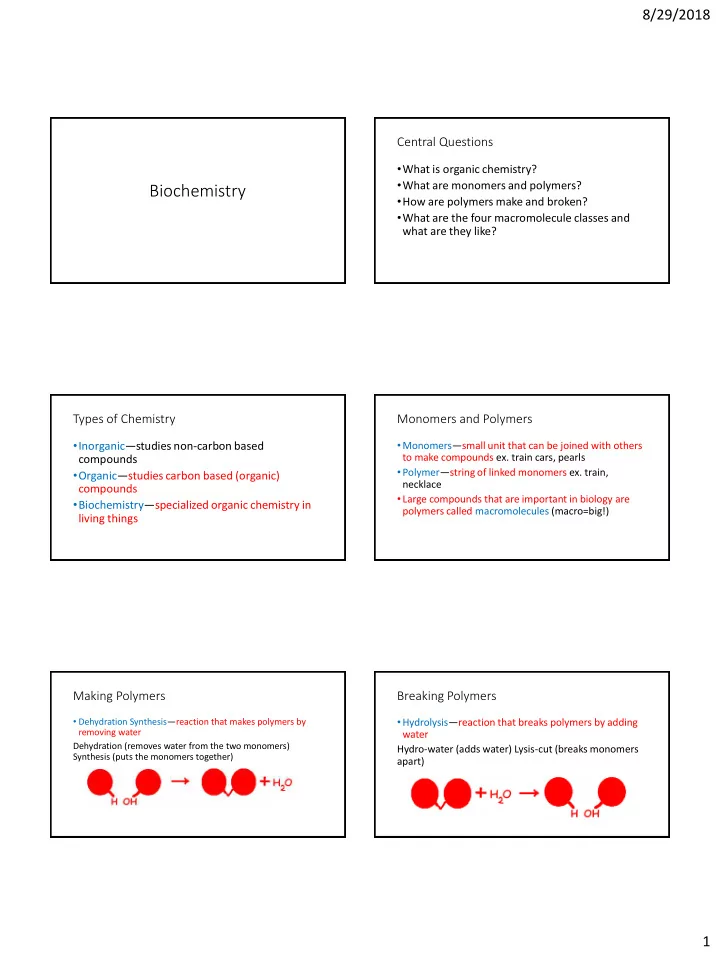

8/29/2018 Central Questions • What is organic chemistry? • What are monomers and polymers? Biochemistry • How are polymers make and broken? • What are the four macromolecule classes and what are they like? Types of Chemistry Monomers and Polymers • Inorganic — studies non-carbon based • Monomers — small unit that can be joined with others to make compounds ex. train cars, pearls compounds • Polymer — string of linked monomers ex. train, • Organic — studies carbon based (organic) necklace compounds • Large compounds that are important in biology are • Biochemistry — specialized organic chemistry in polymers called macromolecules (macro=big!) living things Making Polymers Breaking Polymers • Dehydration Synthesis — reaction that makes polymers by • Hydrolysis — reaction that breaks polymers by adding removing water water Dehydration (removes water from the two monomers) Hydro-water (adds water) Lysis-cut (breaks monomers Synthesis (puts the monomers together) apart) 1
8/29/2018 Macromolecules Compound Carbohydrates Lipids Proteins Nucleic Acids • Macromolecules (also called organic molecules) Purpose: Quick energy Storing Many uses Hereditary energy information are the major molecules that make up living things Made of: Single sugars Glycerol and Amino acids Nucleotides • There are 4 main classes of macromolecules and (monomer) fatty acids you must know them very well Examples: Sugar, starch, Fats, oils, Muscles, hair, DNA, RNA cellulose, chitin waxes, enzymes, etc. steroids Carbohydrates (sugars) Lipids (fats and oils) • Monomer — monosaccharaide • Monomer — glycerol and 3 fatty acids • Elements — C, H, O • Polymer — polysaccharide • Function — long term energy storage & insulation • Elements — C, H, O • Examples — fats, oils and waxes • Function — quick energy • Does NOT dissolve in water!! • Examples — cellulose, glucose, starch & chitin All words that end in – ose are sugars!! Proteins (polypeptides) Nucleic Acids • Monomer — amino acids • Monomer — nucleotide (base, sugar and phosphate) • Polymer — nucleic acid • Polymer — protein • Elements — C,H,O,P,N • Elements — C,H,O & N • Function — storing & transmitting genetic info • Function — regulate chemical reactions, cell • Example — DNA and RNA transport • Examples — enzymes and hormones 2
8/29/2018 Central Questions • What is organic chemistry? • What are monomers and polymers? • How are polymers make and broken? • What are the four macromolecule classes and what are they like? 3
Recommend
More recommend